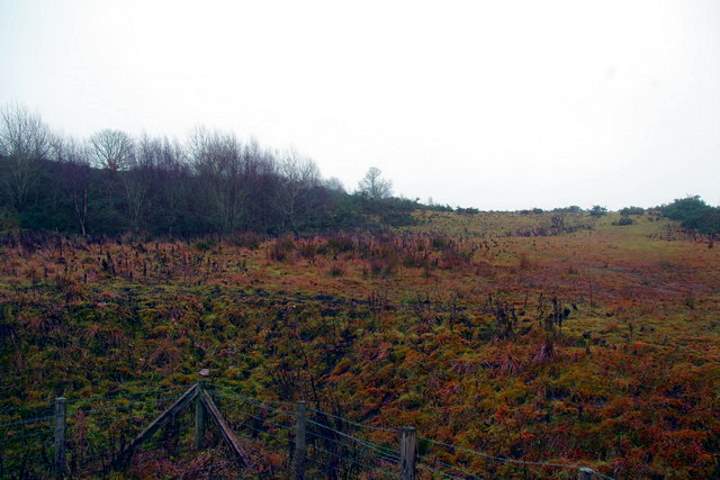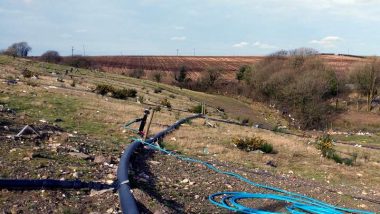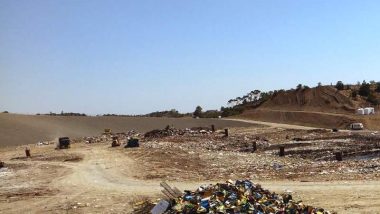These leachate management case studies aim to provide examples of our past projects and the solutions that were adopted for effective leachate management. They are important because leachate management is a critical aspect of waste management at all stages of a landfill that requires careful attention.
IPPTS Associates Role in Leachate Management Studies at Closed Landfills: Leachate Expert
Case Study 1: Leachate Management at a Landfill in Wales
At a Welsh landfill, a prominent waste disposal site, the landfill operator faced significant challenges in managing leachate from an old, closed part of the site that had been classified as “disused contaminated land”. The operator faced the possible closure of the current waste facility unless the problems were resolved.
IPPTS Associates provided a comprehensive report on the specific challenges faced. Strategies were recommended.
Once implemented and the necessary outcomes were achieved, the threat of closure by the regulator was removed.
To prevent a repeat of their leachate management problems, the waste management business incorporated the helpful lessons learned by this client into their normal business practices.

Case Study 2: Leachate Management at a UK Midlands Waste Treatment Facility
IPPTS Associates completed a project on leachate management at a closed landfill site after its change of use to become the site of a regional recycling facility.
A UK Midlands Waste Treatment Facility encountered unique leachate management challenges when a plume of leachate contamination from below a historic landfill under a part of the facility caused the pollution of a local watercourse.
Site-specific challenges were faced when working within the redeveloped site.
An innovative solution was implemented.
Once the remedial works were completed using a nature-based leachate treatment system, the pollution was abated.
Case Study 3: Leachate Management at a Closed Landfill in South East England
IPPTS Associates completed leachate management consultancy work that included a report on collection and treatment options for alternative uses of a closed landfill in southeast England.
After a period of data collection and assessment of the leachate quality and flows, IPPTS Associates provided details of effective strategies and recommended the most beneficial and low-cost option for handling the leachate discharge compliance issues at the site.
Frequently Asked Questions on the Subject of Leachate Management Case Studies at Closed Landfills
What is leachate, and why is it a concern?
Leachate is the liquid that drains from waste materials and can pose significant environmental and health risks if not managed properly. This section provides a detailed explanation of leachate and its associated concerns.
How does leachate form, and what are its components?
Leachate forms as water percolates through waste materials, picking up various contaminants. This section explains the formation process and highlights the components typically found in leachate.
What are the common challenges in leachate management?
Leachate management presents several challenges, including odor control, treatment efficiency, and regulatory compliance. This section discusses the common challenges faced by waste management facilities.
What are some effective strategies for leachate management?
Implementing effective strategies is crucial for successful leachate management. This section explores various strategies, such as landfill liners, leachate collection systems, and advanced treatment technologies.
How can leachate be treated and disposed of safely?
Safe treatment and disposal of leachate are essential to protecting the environment and public health. This section outlines different treatment methods, including biological treatment, chemical treatment, and evaporation.
What are the potential environmental impacts of poor leachate management?
Poor leachate management can have severe environmental consequences, such as groundwater contamination and ecosystem disruption. This section highlights the potential environmental impacts that can arise from inadequate leachate management.
How can companies prevent leachate issues in the future?
Prevention is key to avoiding leachate issues. This article provides practical case studies and best practices for waste management companies to prevent leachate problems in the future.
End Note:
In conclusion, the above case studies shed light on practical examples and solutions for effective leachate management.
Companies must prioritize proper leachate management to mitigate environmental risks and ensure sustainable waste management practices. For further assistance or consultation, please contact us.




You must be logged in to post a comment.